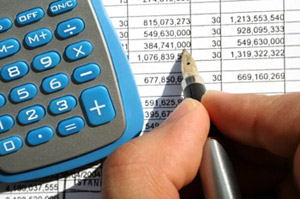What are the Business Taxes in Canada
Another tax payable by the Canadian companies is the Retail Sales Tax (RST), which is based on the retail prices of most goods currently available. Those businesses that sell taxable goods or provide taxable services are required to collect and remit the RST on a regular basis.
The Provincial Sales Tax, as the PST is also known, has a rate that differs with each province. In Ontario, for example, it is 8 percent on most purchases of goods and on labor charges for installment, repair, and maintenance of taxable equipment and goods. The tax is also due for all food products which are purchased for more than $4.00 from a given eating establishment.
Two other taxes collected from business institutions are the Harmonized Sales Tax and Goods and Services Tax (GST). GST is levied on most domestic products and services, except for residential rent, groceries, financial services, and medical services. As of January 1, 2008, the rate of the GST and the federal component of the HST are reduced from 6 percent to 5 percent. With the provincial component of the HST remaining at 8 percent, this means that the current total rate of the Harmonized Sales Tax is 13 percent. Items exempt from the HST include children’s shoes and clothing, feminine hygiene products, diapers, and car seats.
 Only a small number of goods are exempt from the GTS/ HST, but there are some items, as for instance prescription drugs and basic groceries, which are only nominally taxed, at a rate of 0 percent (these goods are known as zero-rated).
Only a small number of goods are exempt from the GTS/ HST, but there are some items, as for instance prescription drugs and basic groceries, which are only nominally taxed, at a rate of 0 percent (these goods are known as zero-rated). Just like in the United States and all West European countries, companies in Canada can claim the deduction of reasonable business expenses from their annual taxable income. These legally deductible expenses include:
- Advertising expenses;
- Insurance premiums paid on business-related machinery, equipment, and buildings;
- The cost of any purchased eligible capital property, such as goodwill, franchises, concessions, or licenses for an unlimited period. However, only a part of this cost is tax-deductible;
- Bad debts;
- Business start-up costs;
- Membership and subscription dues;
- Business use of home expenses;
- Computer and other equipment leasing costs;
- Convention expenses for a maximum of two business-related conventions per year;
- Delivery, fright, and express expenses;
- Fuel costs, etc.
These expenses should be declared on the T2 Corporation Income Tax form, which is to be filed by any company other than charities registered as such for the period of taxation. A shorter version of the T2 is also available, but there are certain requirements one must meet if he or she wants to use it.